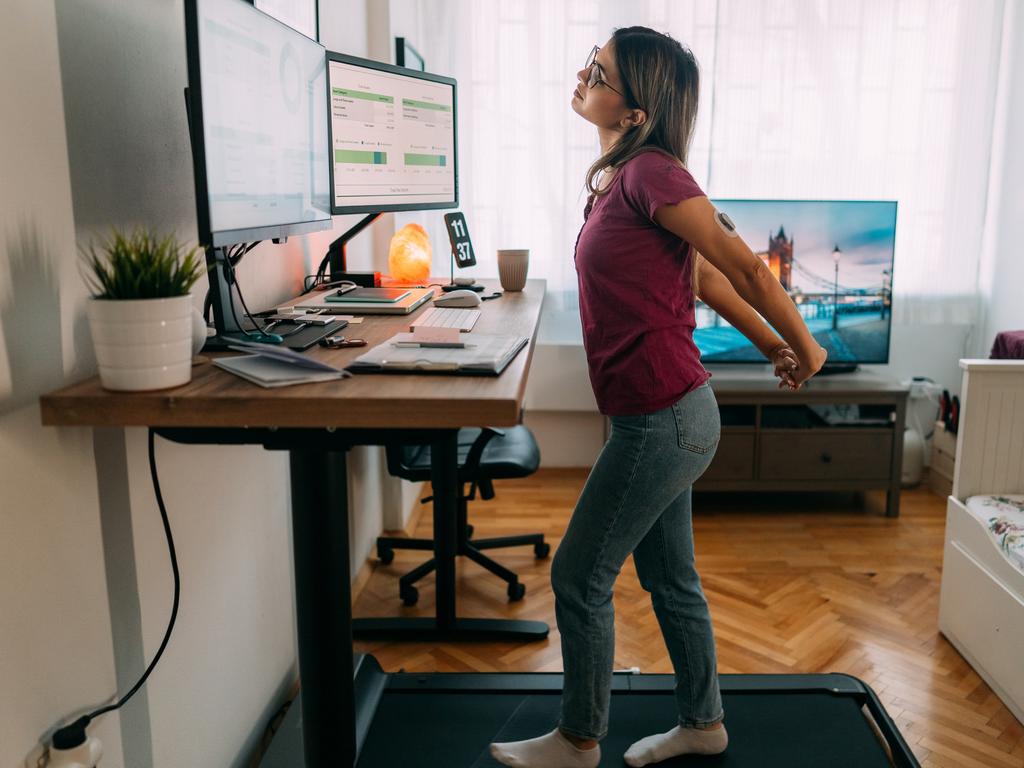Experts reveal little-known reason you’re always exhausted after work
Feeling like you can’t get off the couch after a day of work? You’re not alone, and there’s a legitimate reason you’re so exhausted.
One of my goals for this year is to go on more random side-quests.
Side quests, you say?
They’re basically little micro-adventures that expand your knowledge, challenge you, and make you a more well-rounded person, so your entire personality isn’t your job.
As well as helping your self-development, they also make your day-to-day more fun, meaning your week doesn’t just revolve around your nine to five.
They could include things like completing a puzzle, becoming a national park volunteer or simply getting a library card – to name a few completely random, definitely not belonging to me nerdy side quest ideas.
But the thing stopping me from living my best extra-curricular life is the fact that as soon as I leave the office, I feel like any energy that I’ve had – or deceived my colleagues into thinking I had – just drains right out of me.
When I get home, I inevitably fall into the ‘sit down and scroll’ trap and the thought of getting up and doing quite literally anything becomes all but a light suggestion tucked away in my Notes app New Year’s resolutions list.
It turns out, there’s actually a legitimate reason why I, and most likely you if you’re reading this, can’t get off the couch after work.
And no, it’s not just that you’re lazy or are addicted to TikTok, although – guilty as charged.
Experts say this end-of-day exhaustion is a specific kind of tiredness tied to the mental and emotional strain of work – not necessarily the tasks themselves, but the constant switching between demands, decisions and yes, meetings that could have been emails.
According to Principle Psychologist and clinic owner at Enriching Lives Psychology, Carly Dober, this feeling is something called “cognitive fatigue.”

The reason so many office workers feel exhausted after work
“Many workers might spend their days completing a lot of tasks that aren’t urgent, or necessary, but do create lots of vacuums of time and mental energy to respond to,” Ms Dober told news.com.au.
“Cognitive fatigue occurs when we make many more micro decisions in the day than we need to, and there are so many different touch points that grab our attention in an office.”
These could be noise, colleagues, phones, Slack or meetings.
Also, not moving our bodies can actually be more draining than moving them throughout the day, as our bodies are meant to naturally move.
People with sedentary jobs or back-to-back meetings with little time in between will therefore be the ones most affected by this.

Strategies to reduce the post-work slump
“One of the most straightforward tools office workers can implement almost immediately is ensuring you go on one or two walks per day,” Ms Dober explained.
“This can be on your lunch break or afternoon or morning break, but getting up and moving your body is vital for the brain.
“Ensure you’re eating healthily and having enough water throughout the day as this is also vital for brain and body health.”
Also, in good news for quiet-quitters everywhere, she also encourages people to reduce their cognitive load when and where possible.
“Do you need to have five different ways to contact your team or boss? Probably not. Notice what drains you throughout the day, and consider discussing this with your team because it’s likely some of them are feeling the same,” she notes.
Ironically, doing things outside of work – like side quests, for those playing along – actually help you have more energy during the work day.
Doing fun activities boosts your mood and reduces your stress, particularly if you choose low-stimulating hobbies like art, reading, music or hiking.

The importance of light and sleep
Medical practitioner, Dr Zac, said that workers should also prioritise natural light exposure in the morning, as it plays a critical role in regulating sleep and wake cycles.
“Step outside without glasses or windows filtering the light before 7am. This simple habit synchronises your circadian rhythms making sure you have a better sleep quality,” he said.
Not getting enough sleep can contribute to feelings of burnout and mental fog, so Dr Zac says you should be aiming for seven to nine hours each night.
“Create a good night-time routine, limit screentime and keep a consistent schedule – it works wonders,” he explained.
When to seek help
However, if your exhaustion is persistent, interfering with your ability to function, or spilling into your personal life, there could be some underlying medical issues at play.
“Chronic exhaustion can sometimes signal underlying issues like anaemia, thyroid disorders, sleep apnoea, or even depression,” he warned.
“Vitamin deficiencies, especially B12, zinc, and D, are also common culprits. If you’ve addressed lifestyle factors and still feel constantly drained, it’s worth checking in with your doctor.
“Red flags include feeling hopeless, experiencing physical symptoms like headaches or digestive issues, or finding it hard to get out of bed.”





